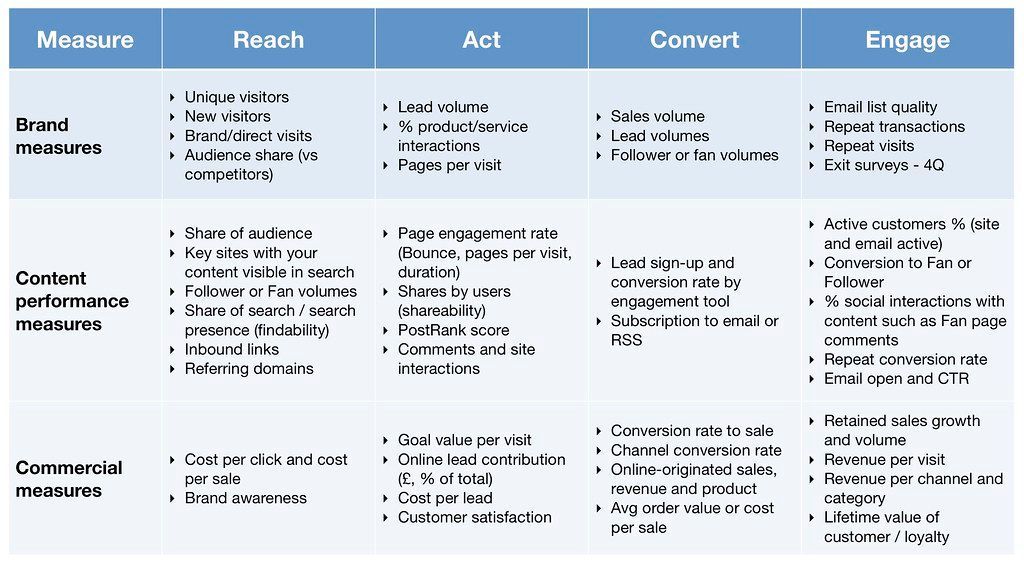Your New Secret Weapon is Here!
Success in sales largely depends on the right selection and overview of key performance indicators (KPIs). This article will focus on the most important sales KPIs and explain how they can be used to measure and improve the success of the sales process.
Sales KPIs - what to watch out for
There are a variety of KPIs that can be important in sales, but it's important to focus on those that are most relevant to your business and industry. Examples of key sales metrics include the number of deals closed, average sales cycle time, and customer retention rate.
It is also important to ensure that the selected sales KPI's are closely linked to the business goals and strategies and are monitored regularly to ensure that they are indeed providing valuable insights. In addition, these KPI's can also be hugely important to the sales funnel .

Examples and tips for sales metrics
Some examples of important metrics in a sales department are:
- Number of new customers acquired: This metric shows how successful the sales team is at generating new business opportunities.
- Average sales value per order: This key figure provides information on how high the average sales per sales transaction are.
- Customer retention rate: This metric shows how successful the sales team is at retaining existing customers and generating repeat sales.
- Sales channel efficiency: This key figure shows which sales channels are most successful and which channels should be optimized in sales.
- Customer Lifetime Value
Some tips to improve the use of metrics in the sales department:
- Set clear goals and regularly measure progress against them.
- Use metrics that are closely linked to business goals and strategies.
- Make the metrics accessible to everyone in the sales department and explain their importance and how they can be used to improve the success of the sales process.
- Work closely with other departments to ensure metrics cover all relevant aspects of the business.
How do you select performance indicators for your company?
Choosing the right key performance indicators (KPIs) for your company depends on several factors, including:
- Business strategy: identify your company's key goals and focus areas and select KPIs that support those goals and focus areas in sales.
- Industry: Investigate industry standards and trends and select KPIs that are relevant to your industry.
- Resources: Consider what resources (e.g., staff, time, money) are available to track and measure the selected KPIs.
- Availability of data: Ensure that the necessary data is available and accessible to measure the selected KPIs.
To select the right KPIs for your company, it can be helpful to assemble a team of salespeople, executives and analysts to consider the various aspects of the business and select the appropriate metrics.
The right KPI in sales also depends on the complexity of the process and should be carefully captured by each sales manager according to the business objectives.
It is also important to regularly review and adjust to ensure that the KPIs chosen are still relevant and helpful.

The advantages of CRM software
It would be difficult and time-consuming to measure the performance of your sales. After selecting the relevant performance measures for your company, your company should analyze the data and monitor the progress in different contexts to make appropriate decisions. The easiest way to achieve this is to use CRM software for sales rep CRM system. Customer Relationship Software.
HubSpot CRM
HubSpot CRM allows you to easily manage sales processes. It also includes tools to manage your customers, a direct interface with your clients directly connected to the company and the provision of customer service.
HubSpot CRM offers a unique set of features that allow users to easily add additional HubSpot capabilities such as sales hubs and service hubs.
Microsoft Dynamics 365
Dynamics 365 integrates a comprehensive marketing solution with sales management tools. It helps centralize all data related to sales and process data efficiently through integrated AI (intelligence). Dynamics 365 offers an excellent dashboard system.
Pipedrive
Pipedrive is particularly suitable for smaller sales teams with a lean sales process. This CRM has been developed by sales teams for sales teams. The key performance indicators are especially interesting for B2B companies.

Which tool to use to monitor your sales performance?
There are a variety of tools you can use to monitor your sales performance. Some of the most popular and widely used are:
- Salesforce: Salesforce is one of the most widely used CRM systems and offers a variety of sales performance monitoring features, such as lead management, sales forecasting and reporting.
- Pipedrive: Pipedrive is an easy-to-use CRM system aimed at small and medium-sized businesses that allows easy monitoring of sales performance, such as tracking leads and opportunities, as well as generating automatic reports.
- Hubspot: Hubspot is an all-in-one marketing, sales, and service platform that makes it possible to track and optimize the entire customer journey. Hubspot also offers a wide range of reporting and analytics capabilities that make it possible to monitor sales performance.
- MS Dynamics: MS Dynamics is another CRM system developed by Microsoft that offers a variety of sales performance monitoring features, such as lead management, sales forecasting and reporting, and the ability to track and evaluate sales rep performance.
It is important to note that no tool is right for every company, it depends on the requirements and the size of the company. Therefore, it is recommended to test different tools and choose the ones that best fit the company's sales KPIs and sales goals.

Sales metrics for sales managers
Sales managers have the responsibility to monitor and improve the performance of their sales team. To do this, they must focus on the right sales metrics. Some examples of important sales metrics for sales managers are:
- Number of deals closed per sales employee: This key figure provides information on how successful each sales employee is compared to his or her colleagues.
- Average sales cycle time: This key figure shows how long it takes to close a sale and provides information on where there is potential for optimization.
- Sales channel efficiency: This key figure shows which sales channels are most successful and provides information on which channels should be prioritized.
- Lead conversion rate: This metric shows how successful the sales team is at converting prospects into actual customers.
- Customer retention rate: This metric shows how successful the company is at retaining existing customers and generating repeat sales.
It's important that sales managers regularly monitor these and other metrics and discuss the results with the sales team to ensure that everyone is working toward the same goals and that everyone knows how to improve their performance.
Sales measures to improve the KPIs in sales
After selecting and monitoring the right Key Performance Indicators (KPIs), it is important to take action to improve them and keep track of them. Here are some examples of actions that can help improve KPIs in sales:
- Training and development: Regular training and development of sales staff can help improve their skills and knowledge, thereby increasing the number of deals closed.
- Lead generation: Improved lead generation can help to increase the number of new customers acquired and improve the lead conversion rate. One tool that is extremely helpful here is meetergo.
- Customer retention: Improved customer retention can help increase customer retention rates and generate repeat sales.
- Process optimization: Optimize the sales process to reduce average sales cycle time and increase channel efficiency.
- Goal setting: Make sure all salespeople have clear goals and regularly monitor and measure how they are progressing against them to ensure everyone is working toward the same goals.
It is important that these measures are regularly reviewed and adjusted to ensure that they are actually helping to improve sales KPIs and maximize the success of the sales process.
FAQ
What is "turnover" anyway?
"Sales" is a term usually used in reference to finance and refers to the total value of all sales made by a company within a given time period.
It is an important indicator of a company's success and provides information on how well the company sells its products or services.
Turnover can be measured in different time periods, such as monthly, quarterly or annually. It is also important to note that turnover does not equal profit, as there are other costs and expenses to consider.
Which key figures are important for sales?
In sales, there are a variety of metrics that are important to measure and improve the success of the sales team. Here are some of the most important metrics in sales:
- Lead conversion rate: This KPI measures how successful the sales team is in converting potential customers into qualified leads. A high lead conversion rate is an indicator that the team is successful in identifying and qualifying potential customers.
- Sales Qualified Lead Conversion Rate (SQL-CR): This KPI measures how successful the sales team is at converting qualified leads into actual sales. A high SQL-CR shows that the team is successful in qualifying and winning potential customers.
- Sales and revenue: These are the classic metrics that show how successful the sales team is. It is important to monitor these metrics regularly to ensure that the team is on track to meet sales targets.
- Customer retention rate: This KPI measures how successful the sales team is at retaining and renewing existing customers. A high customer retention rate is an indicator that the team is successful in building and maintaining relationships.
- Average Sales Value (ASP): This KPI measures the average value of a sale. A high ASP may indicate that the team is successful in selling high-value offers or that the company can sell its products or services at a higher price.
- Sales channel efficiency: This KPI measures the efficiency of the various sales channels. This helps the company to understand which channels are most successful and where it is worth investing more resources.
- Sales cycle time: This KPI measures the average time it takes the team to close a sale. A shorter sales cycle time may indicate that the team is effectively qualifying and accelerating processes to close faster.
- Sales forecast accuracy: This KPI measures how accurately the team is able to forecast future sales. Higher forecast accuracy may indicate that the team has a good understanding of market conditions and forecast factors.
- Sales Team Productivity: This KPI measures the productivity of the sales team by measuring the number of sales per salesperson or the number of contacts per salesperson. Higher productivity may indicate that the team is working effectively and using resources effectively.
- Sales expenses: This KPI measures the expenses that the company has for sales, e.g. travel costs, personnel costs, marketing costs. A lower spend per sale rate may indicate that the company is managing its sales costs effectively.
Your New Secret Weapon is Here!

























